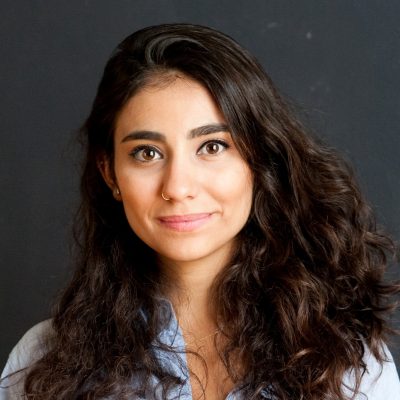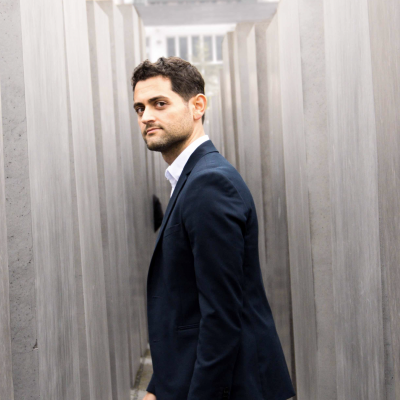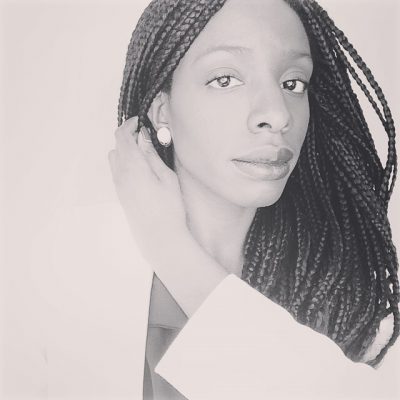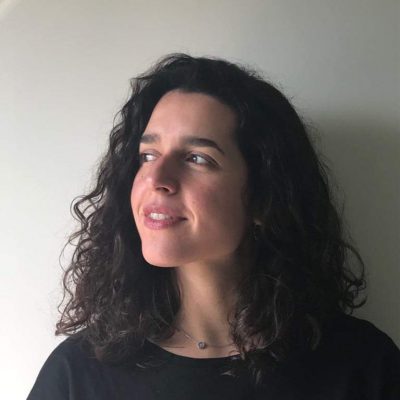Article
Mariana Karkoutly has been advocating for human rights for years. Living in Syria and seeing the countless human rights violations perpetrated against women due to discriminatory laws called her to action. As a student, she participated in Syrian civil society organizations that worked to ensure women’s rights and fight discriminatory laws. She focused on translating shadow reports to be sent to the United Nations in hopes of global action. By the time Mariana moved to Germany, she knew human rights would become not only a passion but a career. While attending Alice-Salomon University for her Master’s, she heard about Humanity in Action and hoped it would expand her horizons and allow her to connect with activists from around the globe with a multitude of varying perspectives.
“The road towards justice is long. And it can be highly affected by political decisions determined by powerful countries.”
She was “motivated by the variety of backgrounds, different people, experiences, and ideas that [she] found at Humanity in Action.” University taught her the importance of using human rights as tools to hold countries accountable on an international level and gave her an understanding of the ethical considerations she would have to take when working with vulnerable groups. However, something was missing: community. Specifically, a community of activists.
“I believe that when we actively involve ourselves and aim to change the world and make it a better place, we always have the best intentions, but with all of the work we do, with all of the anger we have because of the violations that we hear about or experience, we have less time to reflect on ourselves, to ask ourselves why are we doing what we are doing?”
Humanity in Action inspired Mariana, as it comprises of “activists from all over Europe and the United States who continuously share their political, legal and social activism and stay connected.” Speaking to the community of global change actors she’s made with Humanity in Action, Mariana says, “we are still connected, we meet all the time, talk about our projects and help each other. This community is wonderful and this support is simply amazing.”
Participating in the fellowship gave Mariana a chance to reflect on herself, her biases and analyze her thoughts. Upon reflection she notes, “I believe that when we actively involve ourselves and aim to change the world and make it a better place, we always have the best intentions, but with all of the work we do, with all of the anger we have because of the violations that we hear about or experience, we have less time to reflect on ourselves, to ask ourselves why are we doing what we are doing?” For Mariana, Humanity in Action was that space to reflect and discuss while retaining her sense of identity.
Mariana is currently pursuing legal training at the European Center for Constitutional and Human Rights in the field of international crimes and accountability. This training gives her the opportunity to work on cases that are related to Syria, Iraq and Yemen. Since arriving in Germany, Mariana has been engaged with refugees from Syria, Afghanistan, Iran, Eritrea, and Iraq as a social worker. Furthermore, Mariana is actively involved in different women’s rights organizations such as International Women Space and Women’s Computer Center in Berlin (FCZB).
“Critically analyzing Syrian laws and witnessing their discriminatory effect on Syrians made me realize the powerful effect of this legislation.”
She has coordinated projects related to refugee’s mental and psychological health in Berlin and co-founded an organization that aims towards re-defining integration through educational programs targeting all members of the community (asylum seekers, refugees, locals, and migrants) and aims to create a new “integration policy” in Germany. Mariana still works closely with young Syrians through Adopt A Revolution which has been supporting Syrian civil society organizations since 2011, as a project manager for political education with young Syrian activists in diaspora and CJA as a legal consultant on legal cases related to war crimes and crimes against humanity.
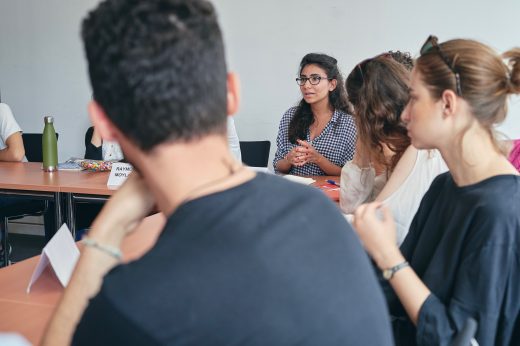
Updated May 2020
More from Mariana Karkoutly
-
Senior Fellow Mariana Karkoutly Delivers Statement to UN Security Council on Sexual Violence in Conflict
On April 13, Senior Fellow Mariana Karkoutly spoke to the United Nations Security Council, during the Security Council's Open Debate on Sexual Violence in Conflict.
-
Senior Fellow Mariana Karkoutly Featured on Hi Society Podcast
Senior Fellow Mariana Karkoutly was a guest on Hi Society, a political podcast that discusses various matters. In this recent episode, she discussed lobbyism in Germany.
-
#CallForAction - 10th Anniversary of the Syrian Revolution
Senior Fellow Mariana Karkoutly, together with a group of Syrian activists in Berlin, is co-organizing a demonstration and artistic intervention campaign to commemorate the 10th anniversary of the Syrian revolution.
-
No Deportation to Syria, No Cooperation with the Assad Regime
Senior Fellow Mariana Karkoutly is one of many Syrian activists and organizations meeting with the German Interior Ministers about extending the Syrian deportation freeze.
-
Berlin has Become the Secret Capital of Bashar al-Asad Opponents
Senior Fellow Mariana Karkoutly has been featured in the Neue Zürcher Zeitung in an article by Ulrich von Schwerin. The article discusses Syrians living in Germany and how they are using the voices and freedoms that were limited in Syria to speak up agains the Bashar al-Asad regime.
-
Integration is more than just learning the German language
2018 Berlin Senior Fellow Mariana Karkoutly, founder and coordinator of the Lou Lou Cafe in Berlin, was interviewed by Amal Berlin on the issue of integration in Germany.
-
Announcing the 2018 Humanity in Action Fellows
-
WePress
How can we bring people from different backgrounds to participate politically and best advocate for their rights?

